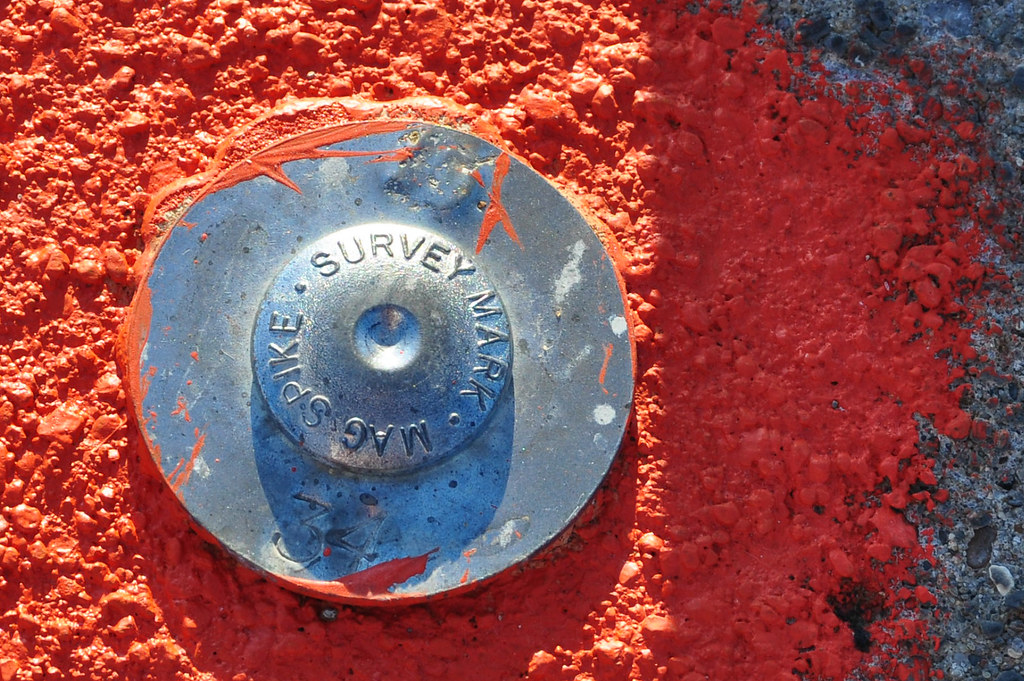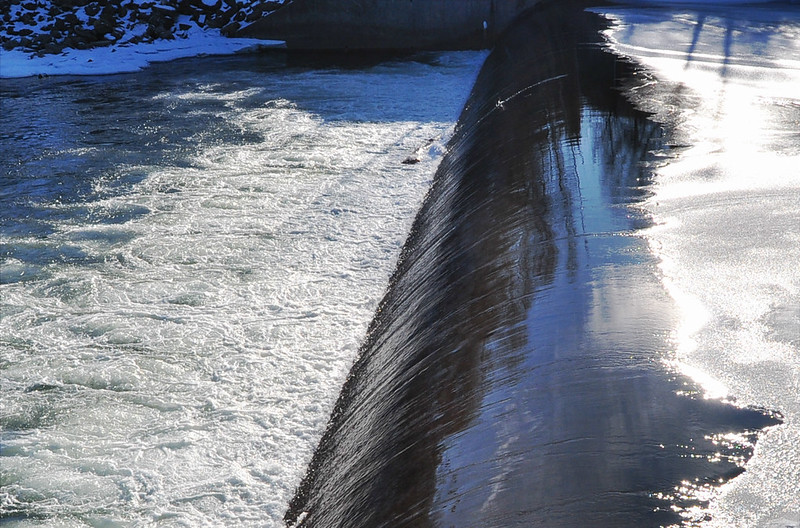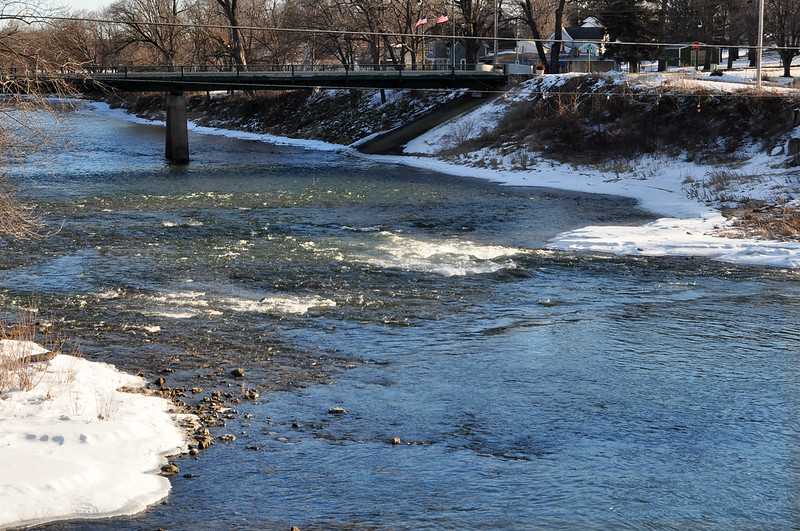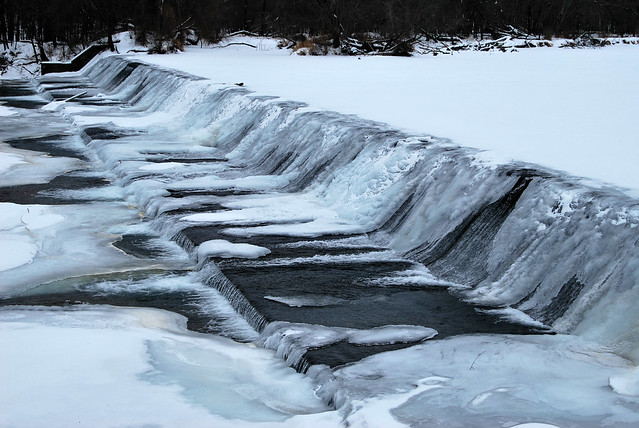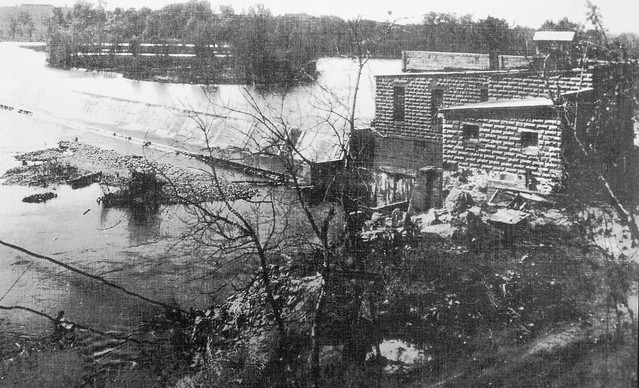Showing posts with label dam. Show all posts
Showing posts with label dam. Show all posts
Tuesday, November 8, 2016
TVA Survey Mark Mag Spike
The 8,000 feet long Kentucky Dam is a TVA project on the Tennessee River that was designed for many uses including electricity generation, commercial navigation and flood control. On top of the dam is this survey marker. Apparently to make it easier to sight, a layer of bright orange paint marks the survey spike's location. Its not hard to miss.
Wednesday, March 16, 2016
February Afternoon at Central City's Roller Dam
In Central City, Iowa the small town is bisected by the Wapsipinicon River. Once part of the town's electrical generation, a roller dam was constructed decades ago which serves to impound the waterway for a few miles upstream. During a late afternoon stop on an early February day the river at the dam is clear of ice and runs nearly transparent. In the Spring the river will turn brown from organic matter of the growing season.
Just a few feet from the churn of the water over the dam, the river resumes its journey downstream. Since fish tend to collect at the base of the roller dam it is naturally a good spot to try your luck at angling. Look closely at the photo above to see fishing tackle entangled in the power line on the right hand portion of the ground just below the street.
Labels:
Central City,
dam,
fishing,
iowa,
roller dam,
Wapsipinicon River,
water,
Winter
Wednesday, August 13, 2014
Dam
A warning sign expresses either an opinion or a warning near the low head dam at Palisades State Park near Mount Vernon, Iowa.
Saturday, January 11, 2014
Winter's Dam on the Maquoketa
To begin the 42N 2014 blogging season I traveled a few miles up the highway to the old dam on the Maquoketa River located at Monticello, Iowa. Last year's blog activity saw a ready stream of posts until a self imposed slowdown in November. While I broke my one-more-blog-posting-than-the previous-year routine, the pause did rack up more material that I can blog about this year. So let's get started...
For more than 100 years this structure and its predecessors have provided grist milling,ice and electrical power for the city. Today the area is noted as historical and for its fishing magic just below the cascades.
A historical view of the dam taken in the 1920s shows various units of the power plant configuration during its peak production period. The stone ice house building, closest to the photographer, was for storage of river ice used in households in the community.
Subscribe to:
Posts (Atom)

